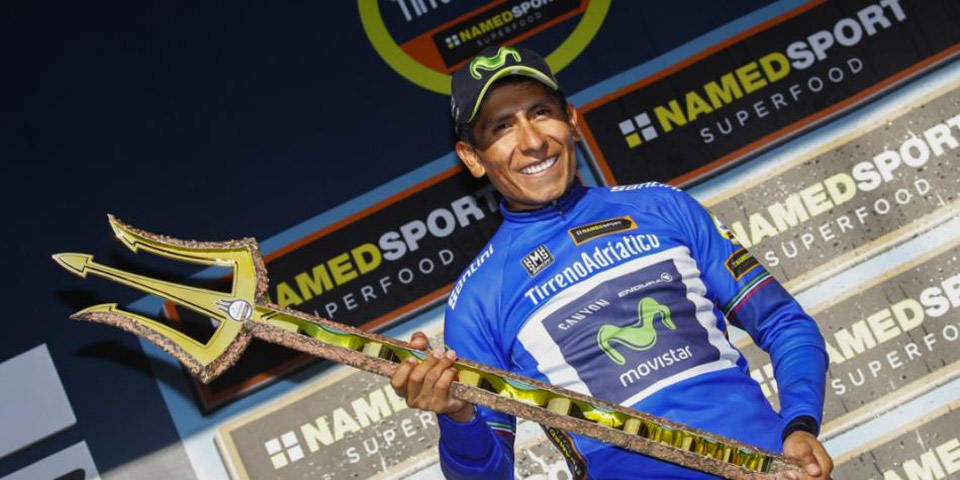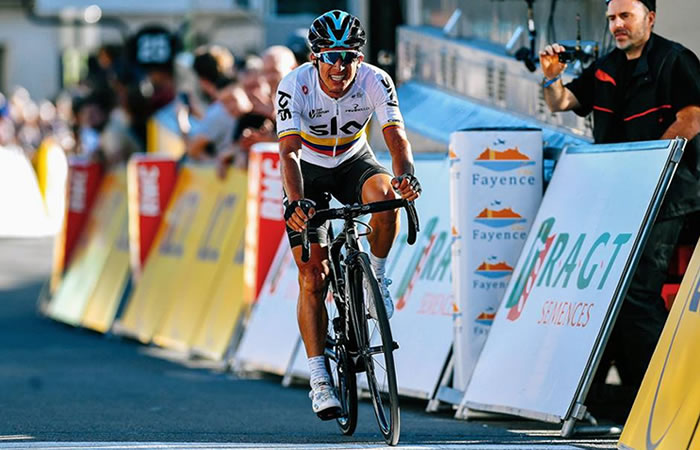 George Saunders has the claim to fame of being the first Englishman in Colombian football since the early 1950s, when multiple Brits crossed the Atlantic to play. In those days, players from ‘the old continent’ were lured to Colombia with big contracts, but times have drastically changed since then and now it’s Colombians who routinely cross the pond to multiply their wages.
George Saunders has the claim to fame of being the first Englishman in Colombian football since the early 1950s, when multiple Brits crossed the Atlantic to play. In those days, players from ‘the old continent’ were lured to Colombia with big contracts, but times have drastically changed since then and now it’s Colombians who routinely cross the pond to multiply their wages.
Unsurprisingly, the 25-year-old’s story is not typical of the average English footballer. Originally from Islington, North London, he moved to Spain with his parents when he was eight years old, before returning to England as a teenager to join the Arsenal youth setup. The two years without his parents, who had remained in Spain, were hard on him, however, so he reunited with them and joined the Villarreal academy.
| Name: George Saunders Age: 25 Nationality: English Country of Residence: Colombia Current Team: Patriotas |
After playing at several lower-level clubs in Spain, in 2013 his manager told him there was an opening in Colombia to play for 13-time champions America de Cali. After two further moves, at the start of the 2015 season he signed a contract with Patriotas de Boyacá, based in Tunja. The Bogota Post spoke with him after a training session about his experiences in Colombia.
Saunders confesses that he didn’t immediately fall in love with Colombia. “My dad had been to Colombia before and told me good things about it, but after my trial week, I wanted to go back to Spain. I didn’t enjoy it at all, but the manager was impressed and the club offered me a contract, so I stayed.”
Saunders needed only a few more weeks in Cali to finally fall for the country. Asked about his time in Bogota when playing for Fortaleza in 2014, Saunders is clear: “I like Bogota, apart from the transportation. I think that Bogota is a great city. You can get practically everything you want there, so I enjoyed it.”
His strangest Colombian experience was during his time in Santa Marta playing for Union Magdalena. “When I signed for Union Magdalena, they told me to see the boss, but the boss was in prison at that precise moment. So, I went there with one of my teammates, and it just looked diabolical. On one side it was really poor, while on the other side there was this massive set-up where the club owner was. It was a bit of culture shock to meet up with your boss in prison, especially because he had his nice set-up there with a chef, television, and that kind of thing. Let’s say it was nice and cosy in there,” Saunders said with a smile.
He doesn’t think he’s treated differently because of being an extranjero. “Everyone knows that I’m English, but in the changing room everyone treats me with respect. Colombians in general are very nice and open, and the trainer tries to bring you into the group when you are far from home.”
 That being said, the Colombian football authorities do treat foreigners differently, in the form of a rule allowing a maximum of four foreigners per team. For Saunders, that could obviously make his life harder, but he supports the rule in principle. “It is certainly doing them well, because you have to use the players that come through your ranks. If you come here as a foreigner, you have to show something they haven’t got. I try to bring in my dynamics, one-touch football, no running with the ball, more the European style.”
That being said, the Colombian football authorities do treat foreigners differently, in the form of a rule allowing a maximum of four foreigners per team. For Saunders, that could obviously make his life harder, but he supports the rule in principle. “It is certainly doing them well, because you have to use the players that come through your ranks. If you come here as a foreigner, you have to show something they haven’t got. I try to bring in my dynamics, one-touch football, no running with the ball, more the European style.”
He adds with a laugh, “I am going to try to get married soon and get the Colombian nationality to slip in a bit easier.”
Despite the rule for foreigners potentially working against him, Saunders thinks it’s something his home country’s league should consider. “In England, they have the wrong idea at the moment, with all the foreigners playing. Without disrespect, because they bring a high level into the Premier League, but if you started bringing in more English talents into the Premier League, you would have a better national selection.”
For now, this English talent is happy plying his trade in Colombia.
By Freek Huigen





